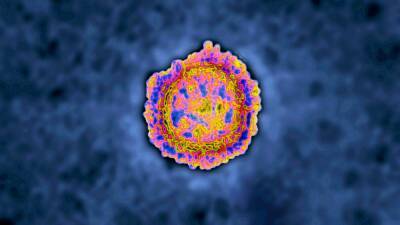Medical marijuana does not help with anxiety, depression, doubles risk of addiction, study says
A festivalgoer smokes marijuana at Lollapalooza on July 29, 2021, at Grant Park in Chicago. (Erin Hooley/Chicago Tribune/Tribune News Service via Getty Images)LOS ANGELES - A recent study found that medical marijuana fails to improve symptoms of pain, anxiety and depression and effectively doubles the risk of developing addictive symptoms and cannabis use disorder (CUD).The study, published by researchers from Massachusetts General Hospital on March 18, also noted that up to one in five users of cannabis may develop CUD."There have been many claims about the benefits of medical marijuana for treating pain, insomnia, anxiety and depression, without sound scientific evidence to support them," said Professor Jodi Gilman in a news release.At least 1.4 million Americans are using marijuana for their health, according to an Associated Press analysis of states that track medical marijuana patients.And while marijuana has been shown to help ease pain and a few other health problems, two-thirds of U.S.
states have decided pot should be legal to treat many other conditions with little scientific backing.Although the effects of any substance vary from person to person, researchers found that those who consume cannabis with anxiety and depression had the highest risk of developing CUD. "In this first study of patients randomized to obtain medical marijuana cards, we learned there can be negative consequences to using cannabis for medical purposes.
People with pain, anxiety or depression symptoms failed to report any improvements, though those with insomnia experienced improved sleep," Gilman added.States that expanded the use of medical pot for common ailments such as severe pain, post-traumatic stress disorder and anxiety saw a.
Read more on fox29.com




















































